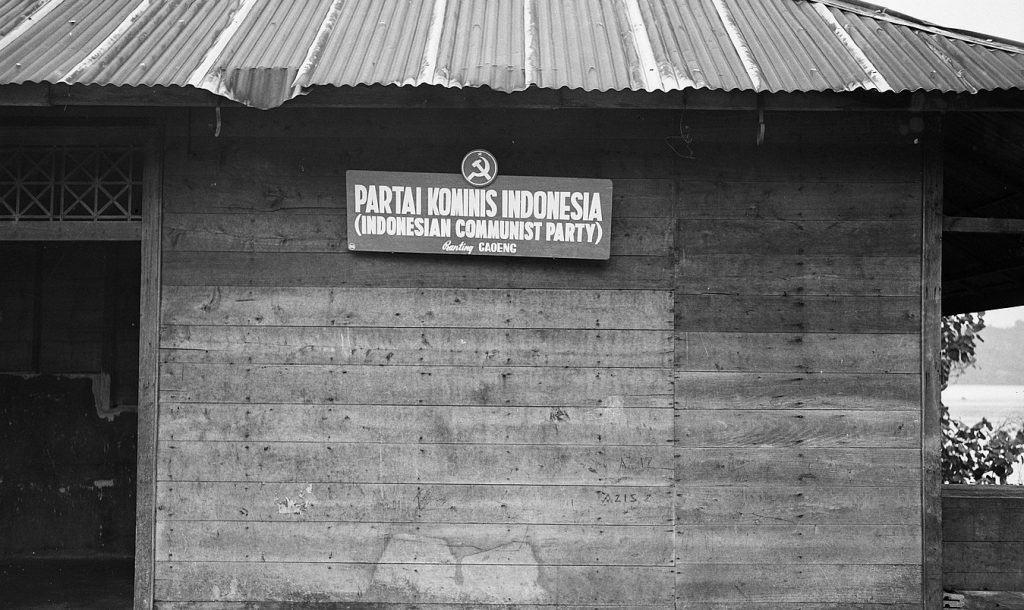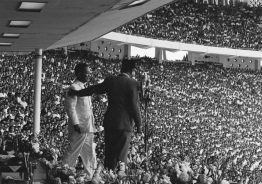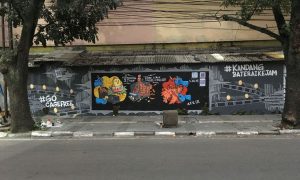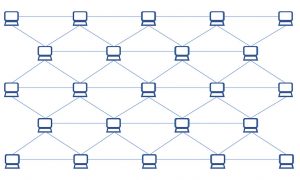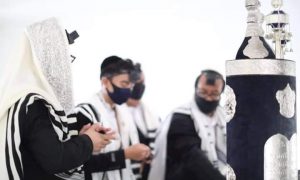The “communist” label, inherited from Suharto’s era, has become a traditional part of the Indonesian “political repertoire”. The great irony is that the more the authoritarian regime establishes a categorical interconnection with latent threats and the definition of an Indonesian communist, the more unclear they become. The 2014 and 2019 presidential elections confirmed this worrying trend. The myth of a dangerous communist resurgence was invoked during both elections, gained considerable traction, and was accepted by millions. In both presidential contests, Joko Widodo (Jokowi) was accused of being a PKI adherent, and the false narrative that he was a “communist candidate” persisted throughout the two campaigns. An entire disinformation industry sprang up promoting the idea that the long-banned and defunct PKI continues to pose a threat to national security, and that communist ideas are supported by many key figures among Jokowi’s allies and sympathisers. Prominent figures from, but not limited to, military backgrounds and vigilante groups, have often promoted this spectral idea and crafted emotive narratives.
The naivete and vulnerability of Indonesian society to these narratives has been precisely yet sadly demonstrated by none other than the elected President Joko Widodo. In the wake of massive political disinformation against him, Mr President desperately countered the allegation that he is a communist adherent by transforming himself into a vehement anti-communist. While the Prabowo and Jokowi factions are very different in terms of their political orientation, they share one thing in common: politically, they agree that choosing to be anti-communist is best. This of course disallows any effort to reconcile the victims and perpetrators of the 1965–1967 wrongdoings: the very reconciliation that may represent notable progress in a democratic state is totally rejected, not only because of its complex process and the position of the military as the leading actor but also because anti-communist sentiment has proven many times to be an effective political resource in the electoral contest.
Part 1: The missing new Indonesian Left
Just as it was particularly difficult for the progressives to withstand repression and killings, reviving the Left after 1965 was equally formidable.
Most importantly, it proves that Indonesia has an extremely fragile position with regard to communism as scare tactic: there is no ideological formula against this except to be anti-communist itself. All anti-communist rhetoric thereby appears as an established status quo of the state ideology.
The vague and ridiculous spectre of communism shows that being anti-communist offers certain benefits. In my research I have mapped numerous rare insights from the inner circle of the presidential campaign teams from 2014 and 2019, who mostly admit to using communist imaginary as an opportunistic political tool. The function of the communist imaginary is not to open and revisit past wrongdoings such as the 1965-67 mass killings. Instead, all attacks are founded on a trauma that has been effectively reproduced by anti-communist forces in the political arena.
The very fact that people already live in a prolonged but fabricated understanding of communist presence, and that the meaning of elites’ role is still veiled in darkness proves that a radical shift should be proposed.
What should be the role of academia to demystify the communist spectre as one persistent routine and effective political formula?
The most important mission now is to radically shift the concern of research from an examination of history to an investigation of the contemporary networked elite that capitalises on the communist spectre. This mission has for many years fallen behind in the study of communism in Indonesia. Previous research has focused on the coup actors and their motives, especially the military and internal conflict between its factions; justice and reconciliation through ordinary courts, tribunals, activism and so on; analysis of 1965 violence in local contexts; the political-economic impact and New Order policy; other actors such as religious elites and Islamic organisations; persistent anti-communist sentiment in cultural realms; surveys and polls providing a limited measurement of public perceptions and finally, communist and/or leftist representation in popular media.
Assessment of the PKI as the main feature of electoral disinformation is very rare. Rather than diving into elite networks and the mechanics of orchestrated disinformation and its direct benefits for the political purposes, many observers seem trapped in debates about the true perpetrators. Those questions remain important in clearing away the darkness of past wrongdoings, but it is now or never for academia to focus on elite reinvention of the communist imaginary in the front of our very eyes.
The post-Suharto context should provide political reform, strengthen law enforcement, and resolve the past human rights abuses. The re-emergence of the communist imaginary distracts from the reform Indonesia requires, and from appropriate analysis to understand the complete picture.
It is clear that political actors are a significant factor in manufacturing communist theme in Indonesia’s electoral campaigns. Contemporary disinformation studies should pay further attention to political actors as orchestrators of falsehoods. This will unveil the broader system operating behind the curtain and enable researchers to investigate the cultural scripts actors use, their political considerations and material benefits. It will also expose both collaboration and contestation between the actors and/or elites, revealing their networks and or hierarchies in the process.
These actors have been gifted authoritative roles as mythmakers and manipulators, and without attention to their work the clarity needed to relieve people from prolonged propaganda trap will never be achieved.
 Facebook
Facebook  Twitter
Twitter  Soundcloud
Soundcloud  Youtube
Youtube  Rss
Rss 